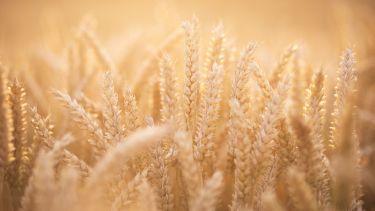Wheat plants engineered to have fewer microscopic pores – called stomata – on their leaves are better able to survive drought conditions associated with climate breakdown, according to a new study.
Scientists at the University of şů«Ӱҵ’s Institute for Sustainable Food found that engineering bread wheat to have fewer stomata helps the crop to use water more efficiently, while maintaining yields.
Agriculture accounts for 80-90 per cent of freshwater use around the world, and on average it takes more than to produce a single kilogram of wheat. Yet as water supplies become scarce and more variable in the face of climate breakdown, farmers will need to produce more food than ever to feed a growing population.
Like most plants, wheat uses stomata to regulate its intake of carbon dioxide for photosynthesis, as well as the release of water vapour. When water is plentiful, stomatal opening helps plants to regulate temperature by evaporative cooling – similar to sweating.
In drought conditions, wheat plants normally close their stomata to slow down water loss – but wheat with fewer stomata has been found to conserve water even better, and can use that water to cool itself.
During the study, , the scientists grew wheat in conditions similar to those expected under climate breakdown – with higher levels of carbon dioxide and less water. Compared to conventional wheat, the engineered plants used less water while maintaining photosynthesis and yield.
The research builds on the Institute for Sustainable Food’s work to develop climate-ready rice, which found that rice with fewer stomata used 40 per cent less water than conventional breeds and was able to survive drought and temperatures of 40C.
Julie Gray, Professor of Plant Molecular Biology at the Institute for Sustainable Food, said: “Wheat is a staple food for millions of people around the world – but as extreme droughts become more frequent, farmers face the prospect of dwindling yields.
“Developing wheat that uses water more efficiently will help us to feed our growing population while using fewer natural resources – making our food systems more resilient in the face of climate breakdown.”
In a separate study published in , scientists at the Institute also found that plants engineered to have fewer stomata are less susceptible to diseases. They hope to be able to replicate these findings in crops such as wheat and rice.
The Institute for Sustainable Food at the University of şů«Ӱҵ brings together multidisciplinary expertise and world-class research facilities to help achieve food security and protect the natural resources we all depend on.

